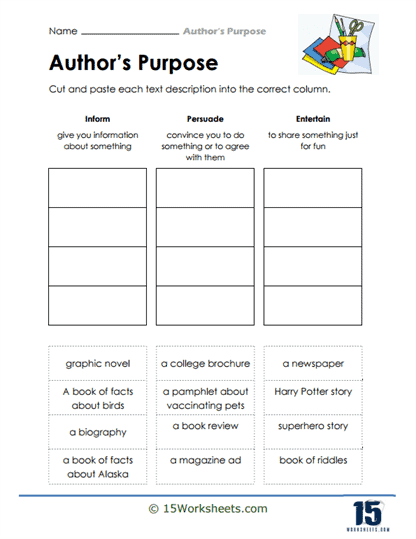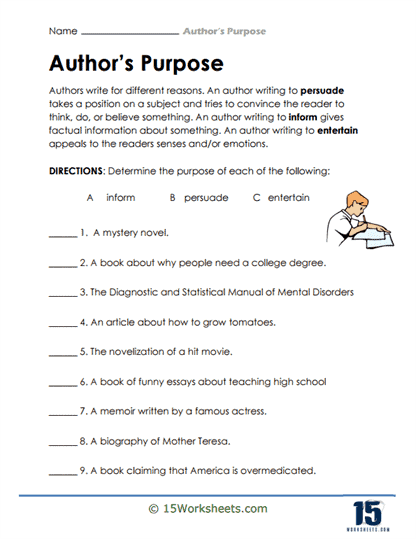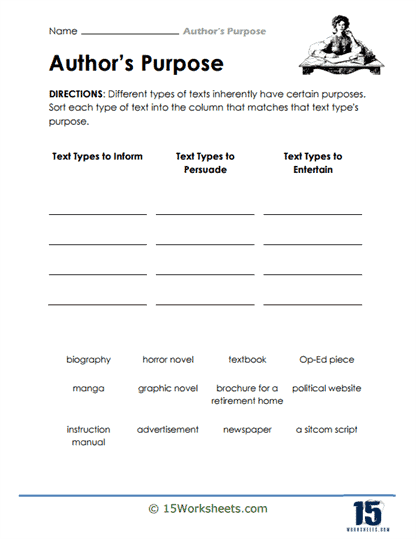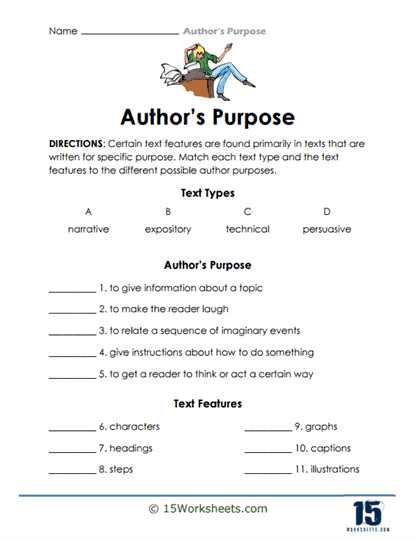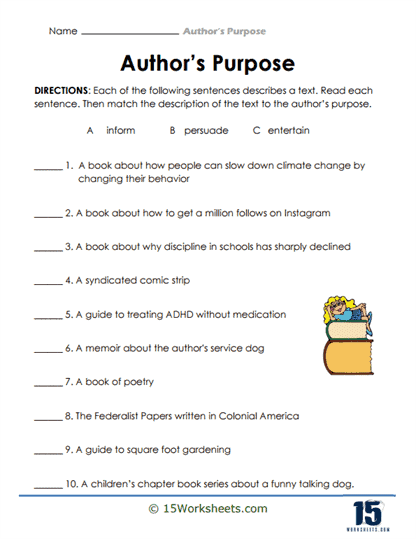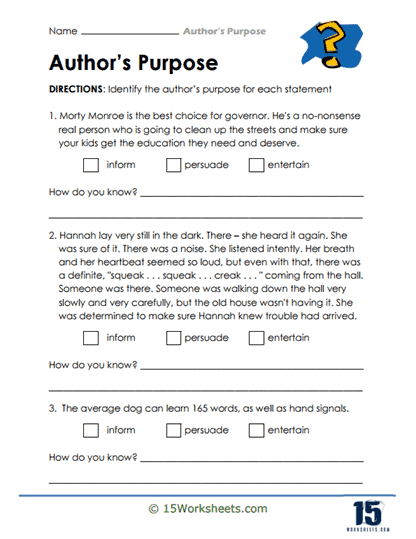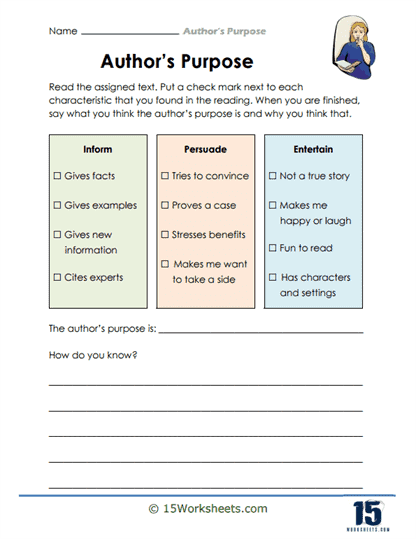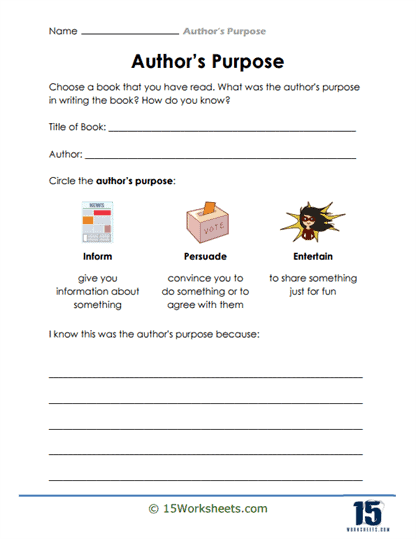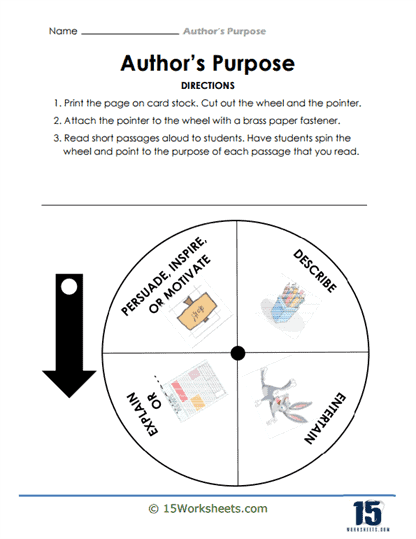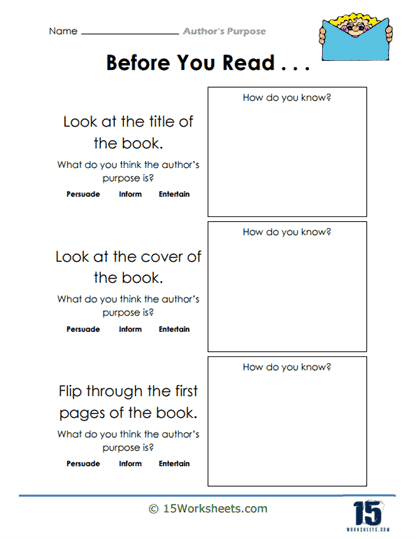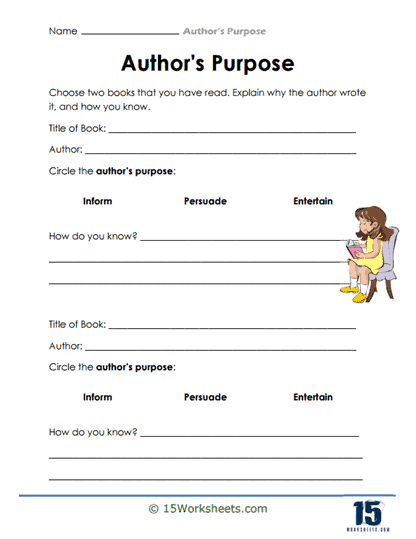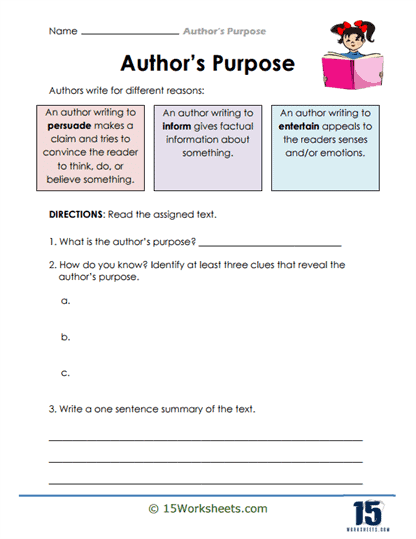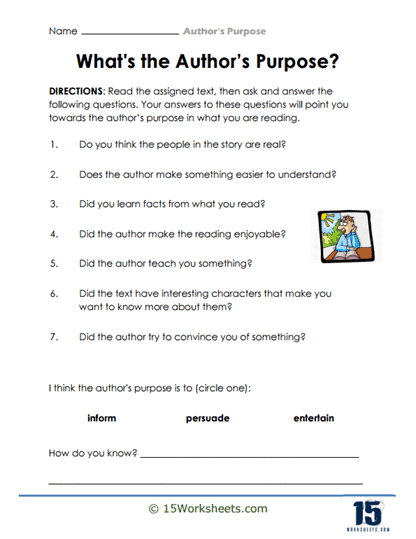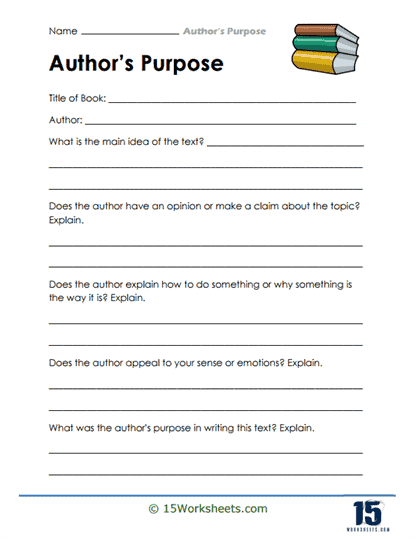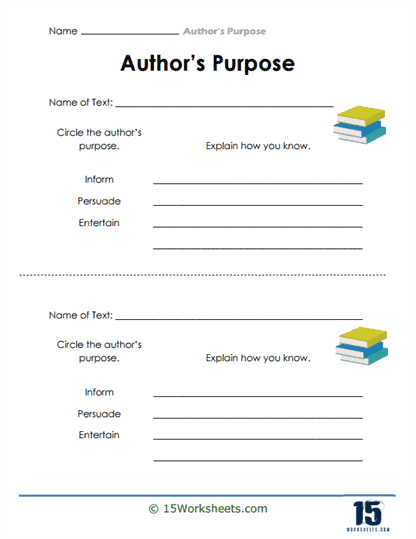Author's Purpose Worksheets
All About These 15 Worksheets
This collection of worksheets are designed to help students analyze why an author has written a particular text, including whether it is meant to inform, persuade, or entertain. These worksheets include a variety of activities that encourage critical thinking and analysis of the text. Some of the activities that are included in these worksheets involve the following.
- Identifying the author’s purpose: Students are asked to identify the author’s purpose in writing the text, and to analyze how the author achieves that purpose.
- Analyzing language and tone: Students are encouraged to analyze the language and tone of the text, and to consider how they contribute to the author’s purpose.
- Short writing prompts: Students are asked to answer short writing prompts to demonstrate their thought process in dissecting an author’s purpose for their writing and how they fulfill it.
Overall, these worksheets can help students to develop a deeper understanding of the author’s purpose in a particular text. By analyzing the language, tone, and audience of a text, students can learn to identify the author’s intended purpose and to appreciate the different ways in which authors use language to inform, persuade, or entertain their readers.
How Do You Determine Why An Author Wrote a Piece of Work?
Determining why an author wrote a piece of work can be a complex task, as it involves analyzing various aspects of the work, the author’s background, and the historical context. Here are some steps you can follow to better understand the author’s motivations:
Read the work carefully: Start by thoroughly reading the work, taking notes on themes, stylistic choices, and recurring motifs. This will give you a solid foundation to build your understanding of the author’s intentions.
Research the author’s background: Learn about the author’s life, career, and other works. Knowing the author’s personal experiences and beliefs can provide valuable context for understanding their motivations.
Examine the historical context: Investigate the time period in which the work was written. Understanding the social, political, and cultural issues of the time can help you identify possible influences and motivations behind the author’s choices.
Analyze themes and messages: Identify the main themes and messages in the work, and consider how they relate to the author’s personal experiences, beliefs, and the historical context. This can give you clues about the author’s intentions and goals.
Look for a preface, introduction, or afterword: Some works include a section in which the author directly discusses their motivations for writing the piece. This can be an invaluable resource for understanding the author’s intentions.
Read secondary sources: Consult scholarly articles, biographies, and critical analyses to gain insights into the author’s motivations. These sources may provide additional perspectives and interpretations of the work.
Consider the genre and style: Analyze the genre and stylistic choices the author made, and think about how these choices contribute to the overall purpose of the work.
Reflect on the intended audience: Consider who the author might have been writing for, and how this might have influenced their goals and motivations.
Discuss with others: Engage in conversations with others who have read the work. Sharing and comparing interpretations can lead to a deeper understanding of the author’s motivations.
Reach out to the author (if possible): In some cases, the author may still be alive and accessible. If you have the opportunity, consider reaching out to the author with your questions.
Remember that determining an author’s motivations can be subjective, and there may be multiple valid interpretations of a single work. By following these steps, you can gain a deeper understanding of the author’s intentions and the factors that influenced their creative process.
Authors write works for a variety of reasons, which can range from personal to professional motivations. Some common reasons for writing include:
- Self-expression: Many authors write to express their thoughts, feelings, and experiences, using writing as an outlet for personal exploration and self-discovery.
- Entertainment: Some authors write with the primary goal of entertaining their audience, creating captivating stories, engaging characters, and imaginative worlds that can provide an escape from reality.
- To inform or educate: Many works are written to convey information, educate readers about a specific topic, or share new ideas and discoveries. This can include nonfiction works, instructional guides, essays, and scholarly articles.
- To influence or persuade: Some authors write with the goal of persuading their audience to adopt a particular viewpoint, change their behavior, or take specific actions. This can be seen in opinion pieces, editorials, and persuasive essays.
- To explore and expand on a theme or idea: Authors may write to delve into a specific theme, concept, or question, using their work as a way to explore and develop their thoughts on a subject.
- To comment on social, political, or cultural issues: Many authors write as a way to engage with and critique societal issues, often using their work as a platform to raise awareness, stimulate discussion, or advocate for change.
- To preserve or share personal or cultural history: Authors may write to document their own experiences, share family histories, or explore and preserve the cultural heritage and traditions of a particular group.
- For the love of language and storytelling: Some authors are driven by a passion for language, storytelling, and the creative process, finding joy and fulfillment in crafting and sharing their work.
- To establish or maintain a professional career: Many authors write to build a reputation, gain recognition in their field, or secure a livelihood through their work.
- To leave a legacy: Some authors write with the intention of creating a lasting impact, leaving behind a body of work that will continue to inspire, inform, or entertain future generations.
While these are some of the more common reasons that an author might write a work, it’s essential to remember that each author’s motivations are unique and may involve a combination of these factors.

